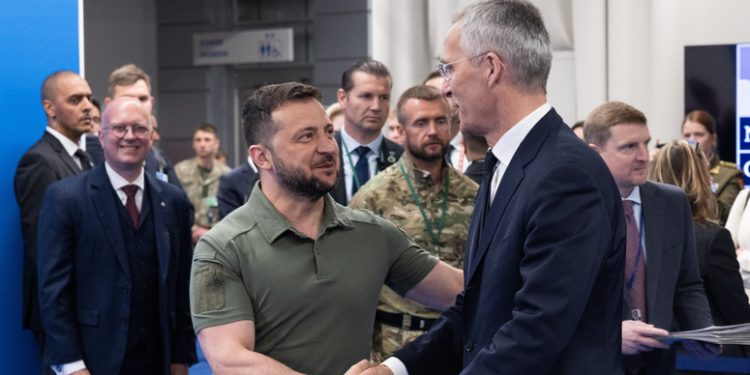During the NATO summit in Vilnius, the G7 leaders, including the US, Germany, Japan, France, Canada, Italy, the UK, and the European Union, issued a joint statement unveiling an international framework to provide long-term security guarantees for Ukraine. The framework is open for other nations to join and aims to deter Russia from future acts of aggression.
The G7 leaders emphasized elements of the framework, including the provision of modern advanced military equipment, training, intelligence sharing, and cyber defense support to Ukraine. In return, Ukraine pledges to implement improved government policies, including judicial and economic reforms, as well as enhanced transparency.
US President Joe Biden affirmed that the G7 will assist Ukraine in building a strong military while it awaits NATO membership. He expressed the belief that Ukraine’s future lies within NATO and highlighted the G7’s commitment to supporting Ukraine over the long term.
Ukrainian President Volodymyr Zelenskyy described the multilateral agreement as a “significant security victory” for Ukraine. Although he expressed disappointment about the lack of a clear path to NATO membership, he acknowledged the security guarantees provided by the framework and the productive meeting he had with President Biden during the summit.
President Biden addressed a crowd at Vilnius University, emphasizing the unwavering support of the West for Ukraine in its fight against Russian invasion. He rejected the notion that Putin believed NATO would break apart, stating that the alliance was stronger, more energized, and more united than ever.
Regarding the possibility of opening a NATO office in Japan, Secretary General Jens Stoltenberg stated that the matter remained under consideration. However, French President Emmanuel Macron emphasized the importance of NATO maintaining its focus on the North Atlantic region and raised concerns about expanding its geographical remit to the Indo-Pacific.



